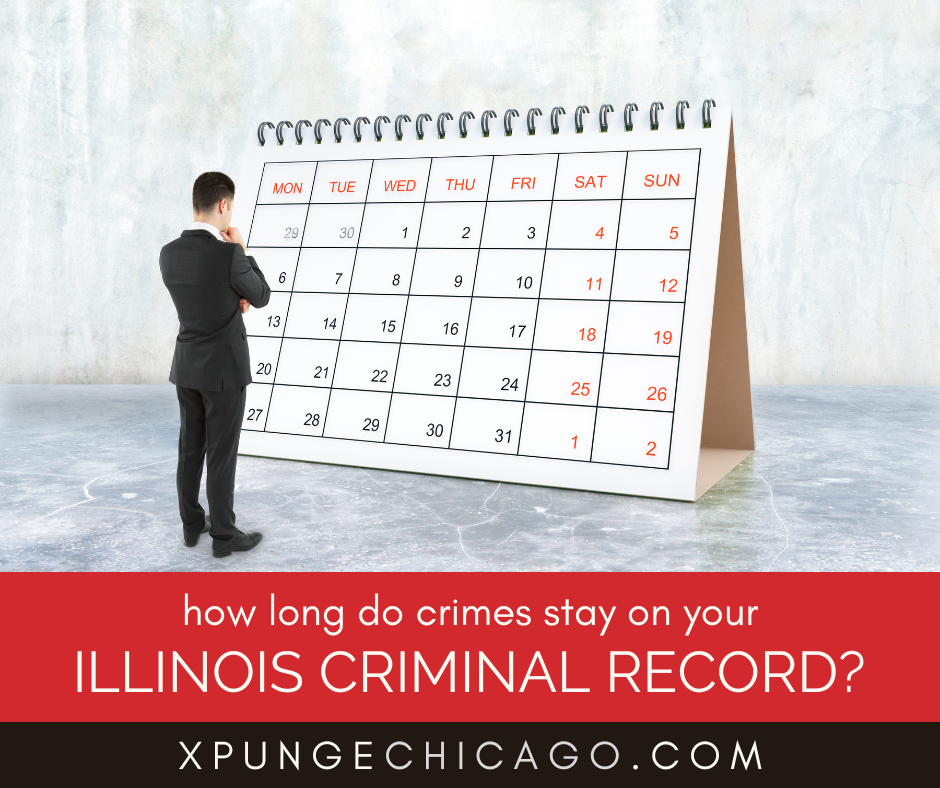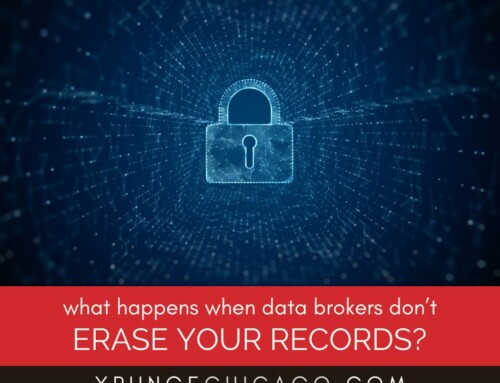
Crimes stay on your Illinois record forever unless you take action to expunge or seal them. Knowing your options for clearing your record can help you move forward without past mistakes holding you back.
How Long Do Crimes Stay On Your Record in Illinois?
Crimes remain on your record indefinitely unless expunged or sealed. This guide explains the following:
- The permanence of criminal records
- The benefits of expunging or sealing a criminal record
- The expungement and sealing process
- Eligibility for expungement and sealing
- How a lawyer can help
Here’s a closer look at each.
The Permanence of Criminal Records
In Illinois, crimes stay on your record forever unless you take steps to expunge or seal them. This means that unless you act, your criminal record will be accessible to employers, landlords, and others who conduct background checks. The permanence of a criminal record can affect many areas of your life, making it harder to find a job, secure housing, or obtain loans.
Related: Illinois expungement and sealing information
The Benefits of Expunging or Sealing a Criminal Record
Expunging or sealing your criminal record can provide significant benefits. In expungement, the law enforcement agency that has your records destroys them or returns them to you. Sealing hides it from most people but doesn’t destroy it. By clearing or hiding your record, you can improve your chances of getting a job, securing housing, and obtaining loans. Expungement or sealing can also help you move forward without the stigma of a criminal record.
LA Rams Player Tackles a Protester During a Game!
Crimson Tide Wide Receiver HITS Female Fan in the FACE!
👮♂️🚨Can Police body cams HELP YOU win your case? 🚨👮♂️
The Expungement and Sealing Process
The process of expunging or sealing a criminal record in Illinois involves filing a petition with the court. This petition must include details about your conviction and why the record should be expunged or sealed. After filing the petition, the court will schedule a hearing where a judge will review your case. The judge will consider factors such as the nature of the offense and your conduct since the incident.
Related: What to wear to an expungement hearing
Eligibility for Expungement and Sealing
Not all criminal records are eligible for expungement or sealing in Illinois. You can expunge certain arrests, dropped charges, findings of not guilty, and vacated convictions. Some convictions can be sealed, but others, like violent crimes or DUIs, cannot. It’s important to consult with a lawyer to understand your eligibility and the specific criteria for expungement or sealing. A lawyer can review your case and help you determine if you qualify.
How a Lawyer Can Help
Navigating the legal process of expunging or sealing a criminal record can be challenging, especially if you’re not familiar with the legal system. A lawyer can be a valuable resource throughout the process. They can help you understand your eligibility, gather necessary documents, and file the petition correctly. During the hearing, a lawyer can present your case effectively, increasing your chances of a favorable outcome. Hiring a lawyer ensures that you have professional support and guidance, making the expungement or sealing process smoother and more manageable.
FAQ About Criminal Records and Expungement in Illinois
Check out these commonly asked questions about criminal records and expungement in Illinois. If you don’t see your question here, please call our office and we’ll find you the answers you need.
How Long Do Crimes Stay on Your Record?
Crimes stay on your record indefinitely unless you expunge or seal them.
Related: How far back do criminal records go?
Can You Expunge a Criminal Record?
You can expunge certain arrests, dropped charges, findings of not guilty, and vacated convictions. Consult a lawyer to find out if your record qualifies.
Can You Seal a Criminal Record?
Yes, you can seal many convictions, but sealed records are still visible to some entities. Expungement completely removes the record.
How Long Does the Expungement Process Take?
The process can take several months, depending on the court’s schedule and the specifics of your case. A lawyer can give you a more accurate timeline.
What Are the Costs Involved in Expungement or Sealing?
There are filing fees and possibly attorney fees involved in the expungement or sealing process. However, the benefits of clearing your record often outweigh the costs.
Related: How can I prevent my kids from finding my criminal record online?
Understanding that crimes stay on your record indefinitely and knowing your options for expungement or sealing can help you clear your record and move forward with confidence. Contact a lawyer to guide you through the expungement or sealing process and help you get a fresh start.
Do You Need to Talk to an Attorney About Expungement or Sealing?
If you’re tired of your criminal past coming back to bite you, we may be able to help. Call us right now at 847-920-4540 or fill out the form below so we can talk about your case.
Oops! We could not locate your form.
















Why Xpunge Chicago?
Matthew Fakhoury January 1, 2023 6:18 pm